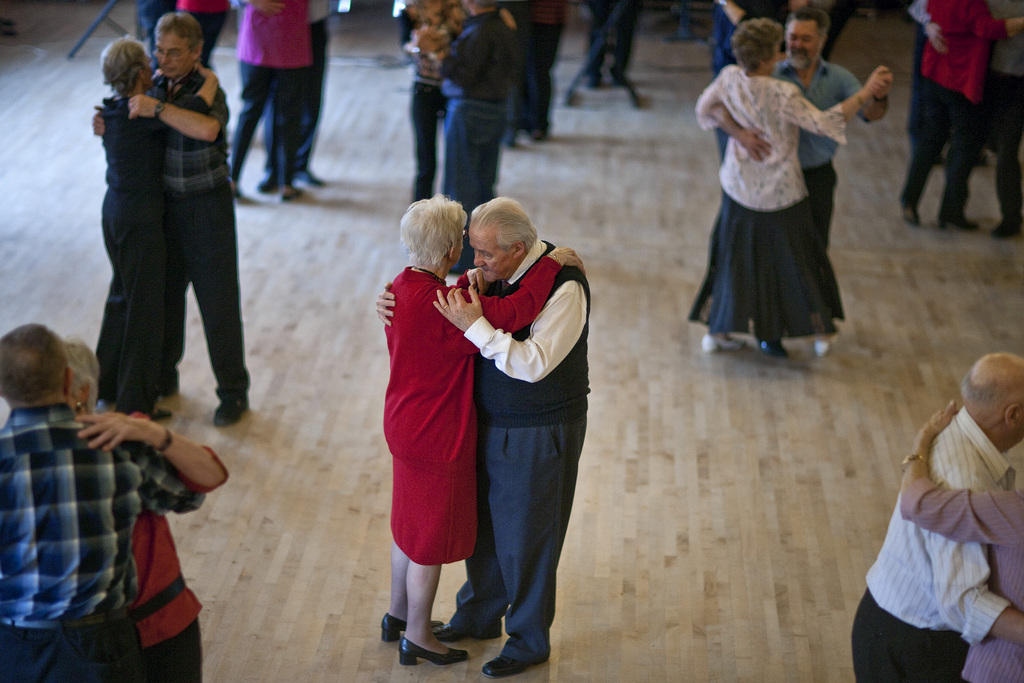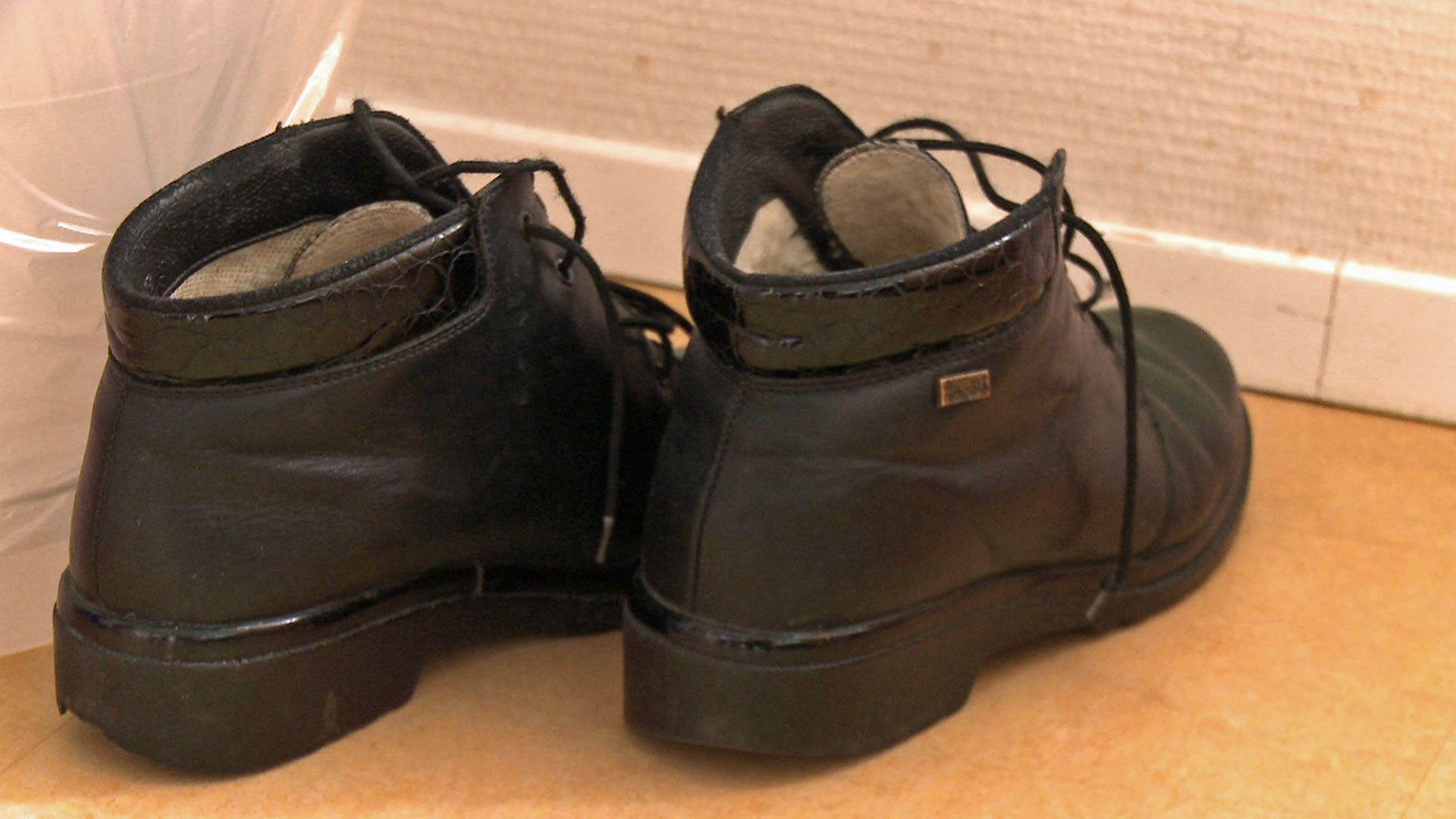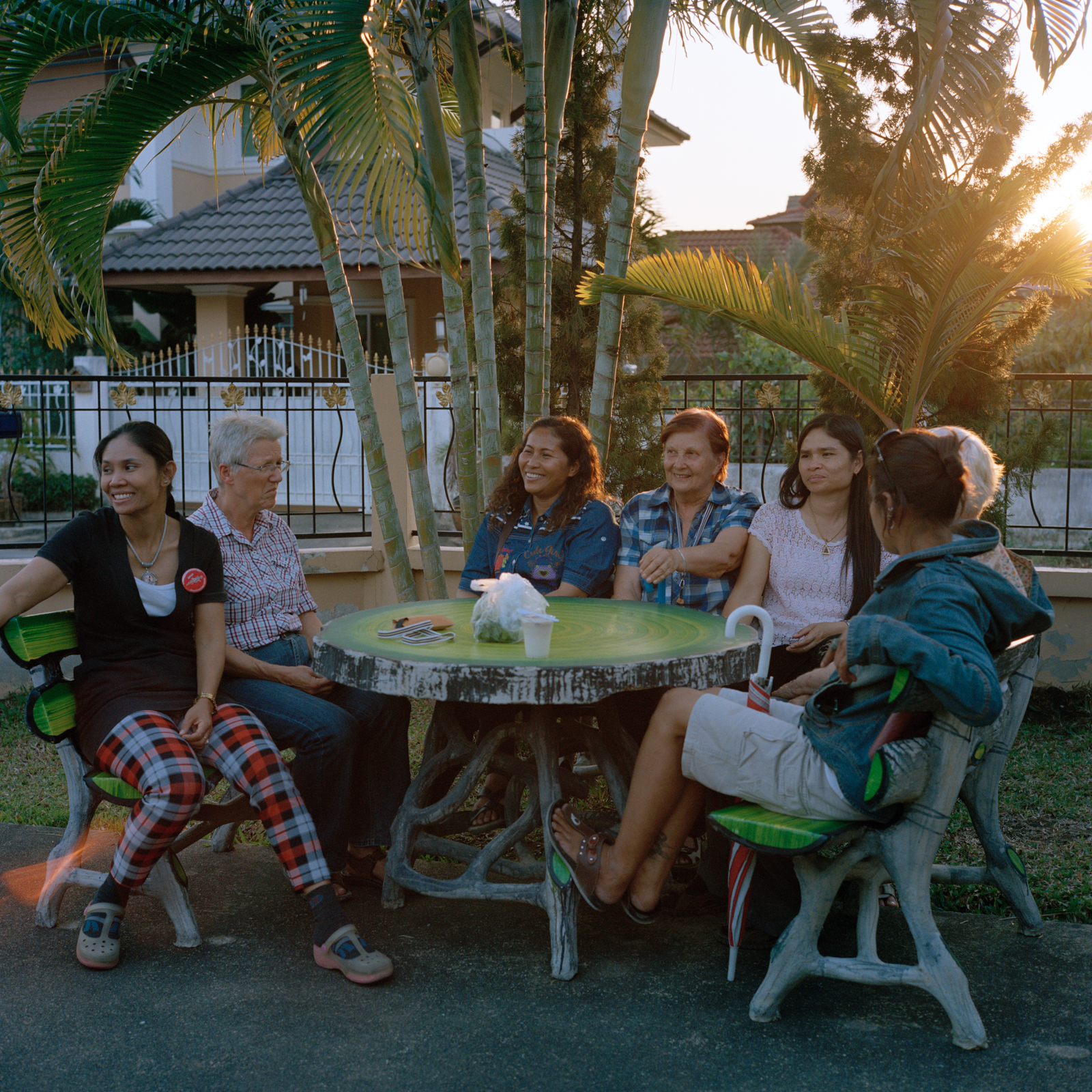Wanted: young doctors for old patients

As people live longer, the need for doctors who can deal with the issues facing the elderly is growing. However, the job of a geriatrician is losing out to other medical disciplines, such as neurosurgery or cardiology, in the battle for new recruits.
The intensive care unit at Bern University Hospital is busy. Nurses check monitors and change bandages of patients hooked up to beeping machines. Doctors travel in a group from bed to bed, transferring information at one of the three daily handovers.
Out of 51 beds, 40 to 45 are generally filled, says Stephan Jakob, chief physician for interdisciplinary intermediate care. And the average age in the unit is increasing.
“Ten years ago, it was not much above 60,” he says. “Now the average age is 65, but with a huge range, up to 90-95. And there are procedures which we didn’t use, let’s say ten years ago, for older patients, like transplantation, invasive treatment for stroke, artificial hearts. Now, because patients are getting older, these are increasingly used also for these patients, and they stay longer than the younger patients. So we need more beds.”
The needs of the ageing
Many problems that affect the elderly begin at a point where people don’t think of themselves as old. Already by the age of 50, one in five Swiss residents suffers from two or more chronic illnesses simultaneously, according to the Swiss Health ObservatoryExternal link. And patients aged 75 to 84 made up a fifth of all patients in Swiss acute care hospitals in 2012. In the United Kingdom, the average patient External linkis more than 80 years old.
Treating the elderly requires special knowledge, says Thomas Münzer, president of the Swiss Geriatric Society and a chief physician in St Gallen. “They mostly have three or four or five different medical problems which need to be managed very carefully. And here we need to have the information about the biology of ageing, and we have to know that an old body functions differently from a younger body,” he says.
Training new doctors
There are special knowledge or skills needed for medical care of older people, and they have to be learnt, says Andreas Stuck, who heads the geriatrics department at Bern University Hospital.
Future doctors first need to learn the special ways disease appears in older persons. They need to learn how to communicate. They need to consider ethical issues, such as “whether you choose very proactive care with very intense treatment in a 90-year-old person as compared with palliative pain relief”. For this, they need to have special knowledge and skills for diagnosis and management of diseases in older patients, Stuck says.
To help standardise what medical students learn about geriatrics, Stuck and a group of European researchers collected input from 49 experts in 29 countries to develop consensus on a ten-point list of minimum requirementsExternal link – knowledge and skills that new doctors should possess after medical school. The study, published in March 2014, concluded: “Major efforts will be needed to implement these requirements, given the large variation in the quality of geriatric teaching in medical schools.”
Furthermore, it’s not just young medical students who have to learn to deal with elderly patients: physicians must respond to the needs of older patients throughout their careers, Stuck says.
Specialists vs generalists
Geriatricians – physicians who specialise in the ageing population – serve in a variety of settings, from hospital care and home care to long-term care and terminal care. They are also involved in overseeing geriatric care and geriatric education.
Jürg Schlup, president of the Swiss Medical Association, says it’s reasonable to require a university hospital’s geriatrics department to be headed by a geriatrician. But according to Münzer, not until 2014 did every Swiss medical faculty have a chair in geriatrics, “so we are far behind in terms of training and education”.
In Switzerland it’s not just geriatricians who care for old people. “The majority of healthcare for older people is provided by family physicians, by hospital physicians, by specialists who have responsibilities for care of older people,” says Stuck. Thus “whatever discipline you choose, you will need special training in geriatrics as part of your training, and that covers the span from pre-graduate to postgraduate training.”
The Swiss doctor shortage
Providing specialised care for the elderly is complicated by the fact that in Switzerland there is a shortage of doctors overall.

More
Swiss politicians tackle the issue of ageing
“First, the number of medical students is too low. Second, the demand for services is increasing with the ageing of the population. Third, the number of doctors working part-time is growing. And fourth, the number of hours physicians are legally allowed to work per week was reduced from 60 to 50” in 2005.
Currently, about one third of the physician workforce in Switzerland is hired abroad, says Schlup, and in ten years that proportion is expected to increase to 50%.
“Thanks to the foreign physicians we’re doing well,” says Schlup. “But Germany, which exports its doctors, is now trying to get them back. We can’t run the system without them.”
Already, medical disciplines are fighting to attract enough young doctors. “If you work for a surgery department or an internal medicine department or a dermatology department, there is very big competition” to recruit students, says Schlup. That means there are even fewer potential candidates for careers in geriatrics.
Who will choose geriatrics?
“We are desperately seeking young physicians who are interested in training in geriatrics,” says Münzer.
But today’s medical students “want to become sports medicine physicians or ophthalmologists or neurosurgeons or whatever,” he says. “Nobody really says, ‘I want to become a geriatrician’. But I think some people make the decision later in their career.”
Gianna Negri, a young assistant physician in the geriatrics department of Bern’s Ziegler hospital, says she hasn’t decided whether she wants to become a geriatrician, but she likes working with old patients.
“A lot of young doctors think geriatrics isn’t exciting, she says, “but I don’t agree at all. I don’t find it boring. We have a lot of days that are challenging and full of action.”
“I think I have one of the most interesting professions existing,” says Stuck, who chose geriatrics in the 1980s.
Münzer, too, is satisfied with his career choice.
“It’s not that spectacular compared with cardiac surgery or neurosurgery,” says Münzer. “You can’t make a lot of money with it. And you’re treating diseases that are not very sexy, like dementia or frailty or falls and fractures and osteoporosis.”
Still, treating the elderly is “intriguing and fantastic”, he says. Every patient is different, and every approach is individual. “And if you look at the numbers, actually, this is the field of the future.”
Some health issues associated with ageing include falls and bone fractures, incontinence, malnutrition, osteoporosis, Parkinson’s syndrome, dementia including Alzheimer’s disease, bed sores (in bedridden patients), multiple medications and drug interactions, loss of autonomy, and the dying process.
The birth of geriatrics
Geriatric medicine was developed by pioneers in the United Kingdom in the late 1800s and early 1900s. In 2012, geriatricians were the largest group of consultant physicians (1,252 out of 12,221) belonging to the Royal College of Physicians. In Switzerland, on the other hand, geriatrics is a relatively new discipline.
The Swiss Gerontological Society, founded in 1953, is a national organisation focusing on the subjects of “old age” and “ageing”. But of its 1,400 individual members, only around 300 are actually geriatricians and organised in a daughter society, the Swiss Geriatric Society.
It wasn’t until 2000 that the Swiss Medical Association, under the auspices of the Swiss Institute for Continuing Medical Education, developed a three-year specialisation in geriatrics for doctors with degrees in general internal medicine.

In compliance with the JTI standards
More: SWI swissinfo.ch certified by the Journalism Trust Initiative













You can find an overview of ongoing debates with our journalists here . Please join us!
If you want to start a conversation about a topic raised in this article or want to report factual errors, email us at english@swissinfo.ch.